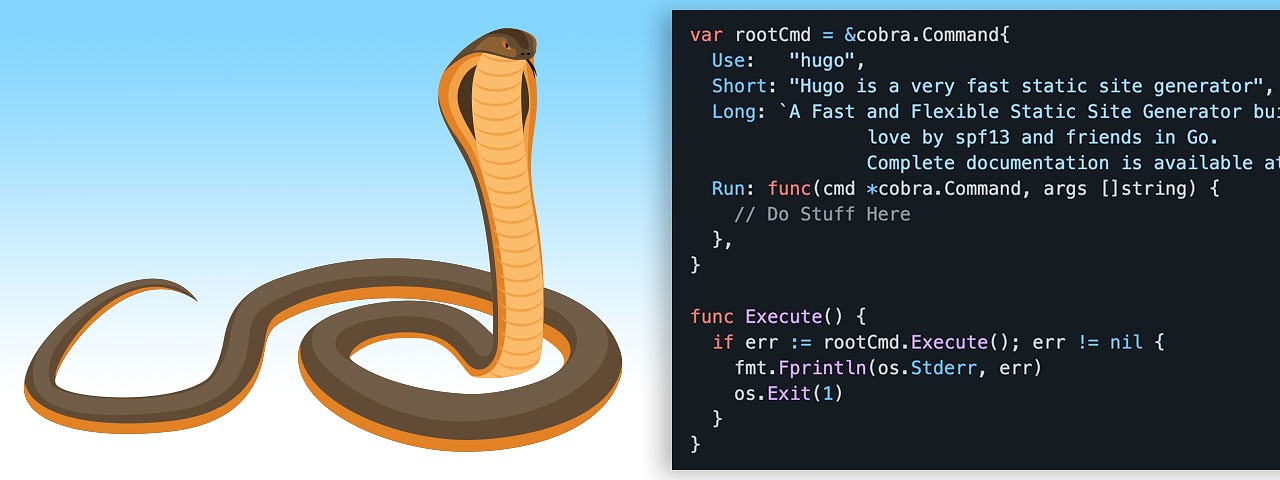#369 — July 2, 2021 |
Go Weekly |

|
|
Cobra 1.2.0: A 'Commander' for Modern Go CLI Interactions — A hugely popular toolset for creating powerful Go-based CLI apps – used in things like Hugo and by GitHub CLI. 1.2.0 is billed as the ‘completions release’ due to a focus on adding autocompletion support (for bash, zsh, etc) for the tools you create. Steve Francia |
|
⛱ Let's Go Take a Break — Google has been encouraging its staff to take some time off to recharge their batteries during this stressful period and the Go team in particular is having June 26 to July 11 as “quiet weeks” with minimal participation on mailing lists, issue trackers, etc. So if you’ve got anything for the Go team to look at... hold on to it for a week or two :-) Russ Cox (Google) |

Better Onboarding: How to Prevent Codebase Overwhelm — Code complexity is increasing, and for new developers joining a team or project, the steep learning curve can be intimidating, confusing, even demoralizing. Learn more about best practices for onboarding and how to get up to speed fast. Sourcegraph sponsor |
|
Google's New Tool for Understanding Package Dependencies — deps.dev is an experimental project by Google that scans places like GitHub and pkg.go.dev for package info, determines full dependency graphs, and then lets you navigate this data. |
|
Exploring a Pipeline Pattern in Go — Pipelines come in useful when you want to break down a task into discrete units that pass output on to the next stage in the process. Ketan Singh |
|
Contributing to the Go Compiler: Adding a New Operator — While Go already has a bitwise NOT (^) operator that does the job, this very long post (43 min!) shows how to contribute to Go, explains compiler concepts, and implements the operator in the compiler. Furkan Türkal |
|
▶ Pop Quiz Time with Dave Cheney and Miki Tebeka — Random quizzes to learn about language features or quirks are common in the programming world (especially on Twitter). Quite a lighthearted episode of Go Time here focused on learning experiences and the value of brain teasers. Go Time Podcast podcast |
|
How to Deploy a Go App on Dokku — Dokku, in short, is a Heroku-like PaaS but that you deploy on your own server.
|
|
🛠 Code & Tools |

|
|
Fibratus: A Modern Tool for Windows Kernel Exploration and Tracing — An interesting place to see Go going. Fibratus lets you trap system-wide events and get deep visibility into what the Windows kernel and processes are up to. Nedim Šabić² |
|
upper/db: A Productive Data Access Layer for Different Data Sources — db is ORM-‘like’ and provides an agnostic way to work with numerous databases like Postgres, SQLite, MySQL, MongoDB, and SQL Server. GitHub repo. upper |
|
The Definitive Guide to Feature Management LaunchDarkly sponsor |
|
Announcing Alda 2: A Text-Based Music Composition System in Go — We recently mentioned Vagrant is being ported from Ruby to Go, and here’s a project going from Clojure to Go! Alda (homepage) is a text-based programming language for music composition. It still requires a JVM though as the sound playing process is written in Kotlin.. Dave Yarwood |
|
Spotify CLI: A Go-Powered Spotify Terminal Client — A lot of people seem to be annoyed with some of Spotify’s recent UI changes so maybe this could help.. Brian Strauch |
|
sso 3.0: A Single Sign-On (SSO) Solution for Securing Internal Services — Specifically leans upon Google as its authoritative OAuth2 provider. BuzzFeed |
|
Musgo: Binary MUS Serialization with Validation Support — A code generator for serializing and deserializing Go objects. ymz-ncnk |
|
coronaqr: Go Decoder for EU Digital COVID Certificate (EUDCC) QR Code Data — If you’ve been vaccinated in the EU and have such a QR code..
|